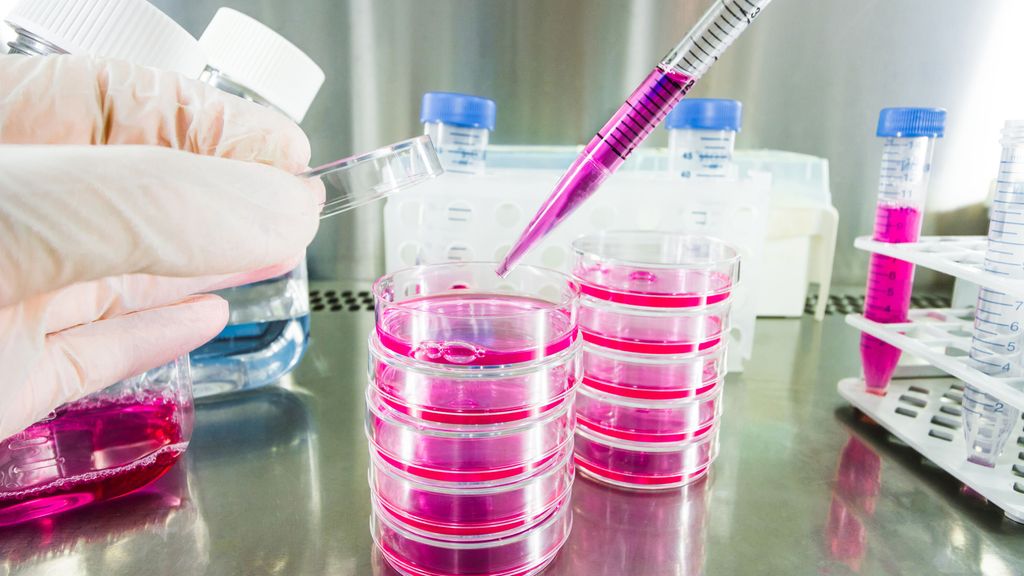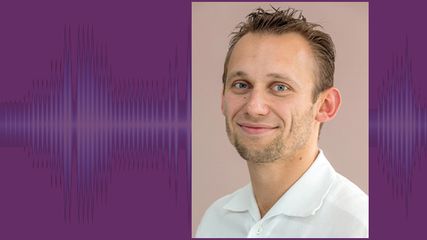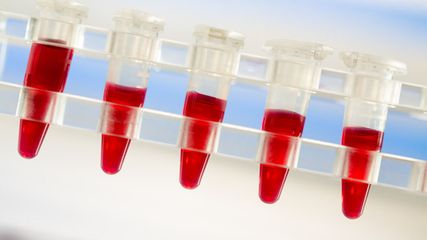
©
Getty Images/iStockphoto
»The lung cancer landscape has been changing very rapidly”
Leading Opinions
30
Min. Lesezeit
11.04.2019
Weiterempfehlen
<p class="article-intro">On the 3<sup>rd</sup> of May, the first ILCS will take place in Geneva, giving health professionals the opportunity to learn about recent discoveries in non-small cell and small cell lung cancer (NSCLC/SCLC) treatment. Additionally, there will be a broad platform to discuss and share knowledge with other experts in the field. We talked to Alfredo Addeo, MD, consultant medical oncologist at the University Hospital of Geneva, who will be chairing this congress together with Solange Peters, MD, PhD, Professor of Medical Oncology at the University Hospital of Lausanne.</p>
<hr />
<p class="article-content"><p><strong>As this is the first ILCS in Switzerland, could you briefly describe the initial intention to host such a conference?</strong></p> <p><strong>A. Addeo:</strong> Firstly, we wanted to act collaboratively and enforce the good relationship between Geneva and Lausanne, which we think worked out very well. Secondly, we planned to gather professionals from different health systems and different countries, and give them a platform to share distinct views and learn from each other. At the end of the day, we are all fighting lung cancer, and we are quite confident that if we can get to unite all this different expertise, we might come up with something very powerful for the patients.</p> <p><strong>Why do you think the perfect time for the first ILCS is now?</strong></p> <p><strong>A. Addeo:</strong> The lung cancer landscape has been changing very rapidly, so it can be quite difficult to keep up with it. Our idea was to gather people around before the big conferences are coming, e.g. the ASCO annual meeting in June, and try to see together: Where are we at the moment? We would like to sum up all the evidence we have, before something new is coming out, and we think it is just a good moment to merge all the new achievements of the last two years.</p> <p><strong>Approximately how many participants do you expect?</strong></p> <p><strong>A. Addeo:</strong> Our venue can accommodate up to 200, so I hope we do not get more than that (smiling). As it is the first time, it may be a little difficult to gather lots of people physically. That is why we decided to use the opportunity to podcast: To give someone from abroad or far away the chance to also be part of the ILCS. Additionally, we are making it interactive, so people from abroad can ask questions during the conference. This is quite a new and different way of running a conference: You do not have to be there physically, which might not be possible for some at the time, or given the limited number of conference space we have. Moreover, people who would like to follow the program for one or two hours, and just want to listen to a specific topic, also get the opportunity to do so. This is quite an innovative idea of running a conference.</p> <p><strong>Which audience would you like to target?</strong></p> <p><strong>A. Addeo:</strong> We are aiming at all health professionals or in general stakeholders in lung cancer treatment. It would not be helpful for patients or relatives to be there, as it will be very technical: We will speak about treatment results, genomics, …</p> <p><strong>Would you like to specifically address pathologists, considering their increasing responsibility in diagnosing lung cancer?</strong></p> <p><strong>A. Addeo:</strong> One of our speakers is an internationally renowned pathologist, Prof. Malapelle, who will come to talk about biomarkers. In this field, things are moving so fast that it can get difficult for oncologists who are not pathologists to completely understand the limit or advantage of a certain biomarker over one or another. We would be delighted to have pathologists attending the whole conference or at least when Malapelle presents.</p> <p><strong>Which topics will the congress focus on?</strong></p> <p><strong>A. Addeo:</strong> There will be one burning question regarding immune therapy: Very often, we just talk about immune therapy in general, using it as a generic term for a big number of drugs, but are all of them exactly the same, or is there any difference? Then we will be having two debates for difficult topics, as we decided to make the congress more interactive. In the field of oncology, very often, there is no right or wrong; very often, truth is in the middle. Therefore, it is nice to have a debate between somebody who is clearly for something, and somebody clearly against something. This will give the audience an opportunity to either change their mind, strengthen their own ideas, or come up with a different view. Additionally, we certainly will focus on the new treatment option in SCLC, as we have seen something new on that. We will talk about oligometastatic disease and genetics – genome mutations and treatment – plus something that is very often forgotten: quality of life. How important is it to have quality of life as an end point in clinical trials? I think it is essential, and we should not approve any drug without a quality of life assessment. So, as you can see, we are going to have a very rich program.</p> <p><strong>Concerning tyrosine kinase inhibitors (TKI) and immune therapies, do you think they will eventually lead to a complete replacement of chemotherapies in the future?</strong></p> <p><strong>A. Addeo:</strong> A year and a half ago, I would have said certainly yes. Now I am not a hundred percent sure – but I wish. The main problem is: We are really lacking biomarkers, so we are giving immune therapy to everybody, also to those who will not respond. And we are not developing enough biomarkers. There is definitely something going on concerning tumour mutational burden or PD-L1 expression – but they are not perfect biomarkers at all. We are moving very slowly. My feeling is, for the next couple of years, at least chemotherapy will still be an important part of our treatment. Of course, I would be happy if it were not, but in reality, we still will have to use it for the next few years.</p> <p><strong>Which talks are you especially looking forward to?</strong></p> <p><strong>A. Addeo:</strong> That is very difficult to say. Frankly, the program is extremely rich – I do not have that one topic which I am particularly looking forward to.</p> <p><strong>Are you already planning a second ILCS?</strong></p> <p><strong>A. Addeo:</strong> In my mind, I already planned ten (smiling). But it depends very much on the energy that I will have left after this one. But yes, the intention is absolutely there, I would really like this conference to become an annual event – the first conference of many. Prof. Peters and me are not working on it yet, but the idea, intention and will are certainly there.</p> <p><strong>Where do you currently see the biggest challenges in treating SCLC and NSCLC?</strong></p> <p><strong>A. Addeo:</strong> Concerning SCLC, we have to say that this is really a nasty cancer. After thirty years, we can now for the first time see some improvement in treatment; not astonishing at all, but a bit better than before using immune therapy. The problem is that we are suffering from a massive lack of biomarkers: I am sure there are some patients who benefit a lot more than others from immune therapy, but we are giving it to everyone now. This is also not really sustainable economically. So, we have to do the best we can to identify the right patients, and to give them the right therapy. That is the key, as we have seen with TKI treatment. There is still a big challenge ahead of us, as not really many treatments are available, even though it got better with immune therapy. In NSCLC, we have to work a lot more on finding targetable driver mutations to identify further effective targeted therapies. Just think about KRAS: It is a driver mutation, quite often present in adenocarcinoma, which we have been talking about for ages now. So far, we have not been able to develop any drug that could target the mutation. We certainly have better treatments in NSCLC than in SCLC, but in terms of biomarkers, we again are really performing poorly. To my mind, we have to invest our resources in detecting predictive biomarkers, as we currently have a lot of prognostic, but not predictive biomarkers. There is still a lot of work to do.</p> <p><strong>As you are also doing research on MPM, will there as well be the possibility to discuss mesothelioma treatment on the ILCS?</strong></p> <p><strong>A. Addeo:</strong> Initially, we also wanted to talk about mesothelioma, but then we changed our mind, because we would have too many different subjects on the congress. To be fair, there are so many things going on in mesothelioma research that it would probably deserve a whole day of discussion rather than just in a slot. We may consider to do something specifically on mesothelioma later on, but not on this conference.</p> <p><br /><strong><em>Thank you for the interview!</em></strong></p></p>
Das könnte Sie auch interessieren:
Highlights zu Lymphomen
Assoc.Prof. Dr. Thomas Melchardt, PhD zu diesjährigen Highlights des ASCO und EHA im Bereich der Lymphome, darunter die Ergebnisse der Studien SHINE und ECHELON-1
ASH 2020 – Highlights zu den aggressiven Lymphomen
Highlight-Themen der virtuellen ASH-Jahrestagung im Dezember 2020 waren an erster Stelle die Immunonkologika in all ihren Variationen, aber auch Beispiele für innovative Sequenztherapien ...
Aktualisierte Ergebnisse für Blinatumomab bei neu diagnostizierten Patienten
Die Ergebnisse der D-ALBA-Studie bestätigen die Chemotherapie-freie Induktions- und Konsolidierungsstrategie bei erwachsenen Patienten mit Ph+ ALL. Mit einer 3-jährigen ...


